By Liane Whiteside
July 2020
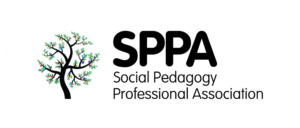
I want to speak about communication and the importance of making it more effective. Since around February last year, my awareness of 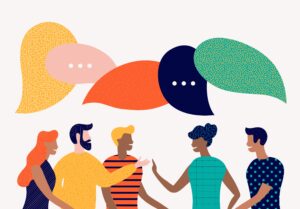 communicating with others has increased dramatically and I am beginning to understand the diverse ways in which communicating can achieve goals far beyond making somebody understand a simple instruction.
communicating with others has increased dramatically and I am beginning to understand the diverse ways in which communicating can achieve goals far beyond making somebody understand a simple instruction.
The majority of my experiences have been extremely positive and the knowledge I have gained around communication has given me the faith and confidence to utilise a range of methods in order to reach out to people. Through self-reflection, I see that I personally communicate in different ways with diverse people. Yay!! This for me is an achievement, which makes me feel so much pride inside, that I question, why? Why does everyone not want to feel like this? So what is that I’m actually getting at?
People communicate on many levels and in varied ways, but how much of it is actually successful?
In society, there are visible breakdowns in communication that are extremely detrimental to people. One particular area that more recently shouts out to me is ‘Social Prescribing’ and well-being programs. Currently ‘social prescribing’ is the way forward within the medical and mental health sector and also a huge attempt to avoid further medical costs occurring. It also reduces appointments at clinics for social problems rather than medical. However, only by actually attending a doctor’s appointment in the first place, can a person actually be referred for social prescribing. The NHS says that more than 1000 link workers will be hired in the near future and they are expected to handle around 900,000 appointments per year. This breakdown could potentially be detrimental if we don’t start to communicate.

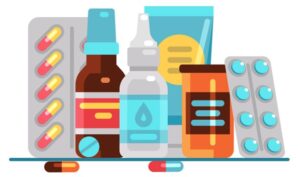 A high percentage of society that suffers from some kind of mental illness such as anxiety or depression, never actually attempt to speak to a doctor or attend appointments and many others are immediately prescribed medication in an attempt to cure the cause, rather than prevent it.
A high percentage of society that suffers from some kind of mental illness such as anxiety or depression, never actually attempt to speak to a doctor or attend appointments and many others are immediately prescribed medication in an attempt to cure the cause, rather than prevent it.
Alternative measures are on the rise and there are now many new community projects and programs available that are attempting to do just that. Act as a preventative means to avoid a downward spiral of a person’s health and well-being, due to unnecessary medication.
I am currently in a valuable position to be partaking in such a program with the people that I support. By using a model known as the common third, I am able to communicate through participating within a practical activity such as gardening in order to reach several shared goals. Such as enhancing social skills, building up confidence in both team work and independent tasks, promoting becoming self-sufficient and communicating with the local community.
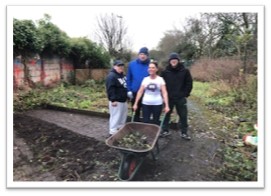
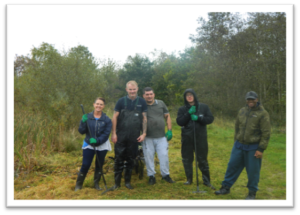
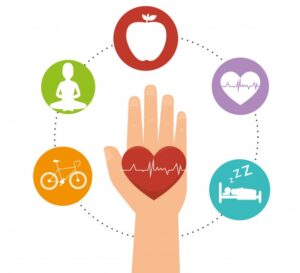 From what I have researched such programs consist of the majority of areas that touch upon a person’s mental health and well-being, such as reconnecting people with their physical, emotional and mental self, that all enhance a person’s ability to communicate with others and are all related to taking back control of aspects of their lives that they may have lost touch with. Sometimes it may be the simplest action, such as listening, that redirects a person’s mindset. By trying to reach out to communities through collaborative participation of well-being and mindfulness and creating a relational approach, based on shared human experiences, these programs, may just be able to do that. At some point, the socially prescribed people, will be referred to these community projects, so why not start off there in the first place and save extra excessive time and money and potential prescribing?
From what I have researched such programs consist of the majority of areas that touch upon a person’s mental health and well-being, such as reconnecting people with their physical, emotional and mental self, that all enhance a person’s ability to communicate with others and are all related to taking back control of aspects of their lives that they may have lost touch with. Sometimes it may be the simplest action, such as listening, that redirects a person’s mindset. By trying to reach out to communities through collaborative participation of well-being and mindfulness and creating a relational approach, based on shared human experiences, these programs, may just be able to do that. At some point, the socially prescribed people, will be referred to these community projects, so why not start off there in the first place and save extra excessive time and money and potential prescribing?
Communication is the answer, but communication is the issue here…
How do we get people to attend these projects and find a starting point for their personal journey to recovery and rediscovering themselves?
Then… How do we simulate an idea that has grown from grassroots and implicate it on a national level?
This takes time, effort and a great deal of human empathy. We need to be brave enough to get active and start strengthening Human Relationships by communicating effectively.
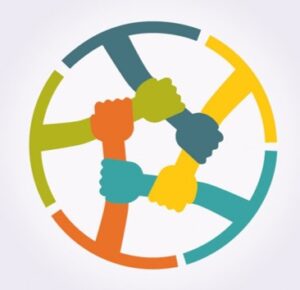 Interdependence is hard for people to accept sometimes (myself included). However, now is the time to surround ourselves with people that we trust and who we know we can depend upon. Why would we not trust each other enough to have a collective perception, in order to gain a positive outcome? Do we doubt ourselves and others, that much?
Interdependence is hard for people to accept sometimes (myself included). However, now is the time to surround ourselves with people that we trust and who we know we can depend upon. Why would we not trust each other enough to have a collective perception, in order to gain a positive outcome? Do we doubt ourselves and others, that much?
We need to be brave and trust in people by being transparent and trusting ourselves and not feel vulnerable when we actually are transparent. Bringing your whole person is reality and impacts in a way that shows how things really are and not how society says that we should say it is. Talk to people, network and spread the word.
I am in need of your thoughts, ideas and suggestions here people! Can we find the missing link that could potentially help some co-production between a program that is pre-prescription and the new non-medicating offer from the NHS-social prescribing? Are we able to network enough to get this message out to where it needs to go?
Some of the most valuable moments happen actually in the moment and taking the time to grasp those moments and make the absolute most from them could potentially make that important difference.
We need to get busy and be involved, to look around us and see what is happening in our communities or even better, make something happen ourselves for ourselves and others. By critically reflecting upon the breakdown in communication here we need to promote social action.
Useful sources:
http://www.thempra.org.uk/social-pedagogy/key-concepts-in-social-pedagogy/the-3-ps/
https://www.england.nhs.uk/personalisedcare/social-prescribing/



